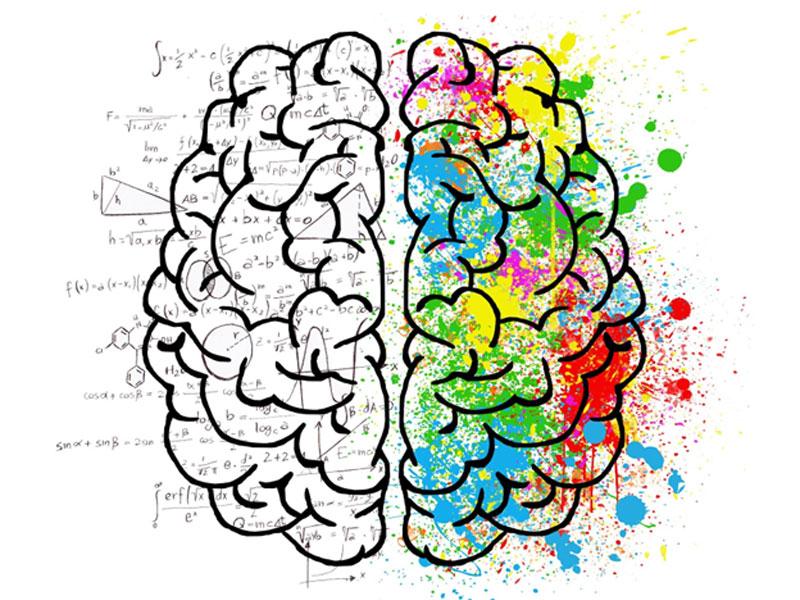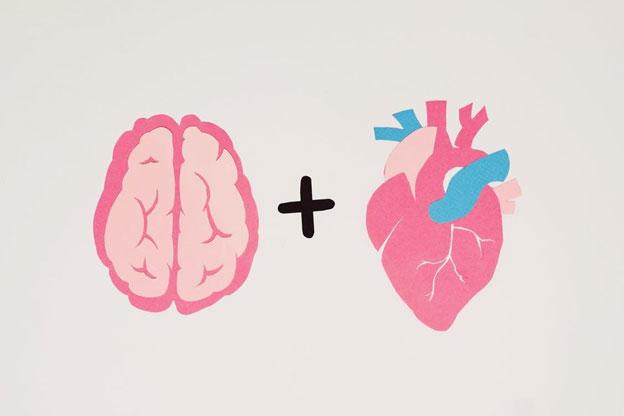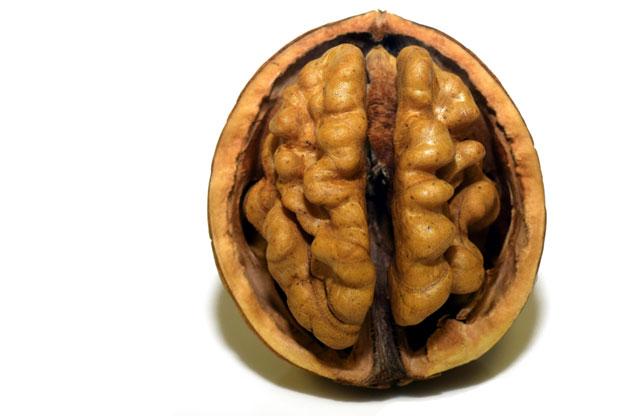You are what you eat! We can all relate to that from a body aesthetic point of view, but can our food choices also boost our mental health?

Protect the brain with brain food
As the command center for your body, your brain is responsible for your blood flow, breathing, emotions, motor skills, thoughts, and other mechanisms that control your body. It’s important to keep it in top condition, as what you put inside your body can influence your mental and physical state, as well as your learning and memory, for better or worse.
While only making up a small percentage of your body weight, your brain uses around 20% of your calorie intake, so you’ll need plenty of quality fuel to perform at peak working condition. Eating the right foods can result in not just lower blood pressure, but improved cognitive skills and better concentration.
Healthy heart = healthy brain

How does healthy food affect your brain? Your brain needs specific nutrients to maintain and optimize health, one example being Omega-3 fatty acids. These healthy fats help us to grow via early cognitive development during our time in the womb and continue to boost our memory and brain function as adults.
It turns out that the best foods for your brain are the same ones that are best for your heart, so what are brain-healthy foods? Here’s 10 foods that support brain health:
Blueberries

Packed with antioxidants, which combat inflammation and oxidative stress by neutralizing free radicals to protect the cells, blueberries may help slow down the the brain’s aging process and as well as reduce the risk of developing neurological conditions (like Alzheimer’s)in your golden years. Grab a handful or more with some oats in the morning.
Broccoli

One of the most nutritious leafy greens around, another superfood packed with antioxidants is Broccoli. High in Vitamins C and K (more than 100% RDI), as well as dietary fiber, Broccoli also contains glucosinolates, which produce isothiocyanates – believed to reduce the risk of oxidative stress and combat neurological diseases.
Coffee

This much-loved brew contains antioxidants and caffeine. Caffeine makes you feel alert by blocking the receptors responsible for sleepiness. Other health benefits include enabling the brain to process more information, improved mood via increased dopamine, sharpened concentration, and a reduced risk of neurological disease.
Dark chocolate

Dark chocolate (also known as Cacao or Cocoa)(alspowder makes people happy! Stuffed with antioxidants, caffeine, and flavonoids, it is believed that flavonoids stimulate blood flow in the brain and can enhance your memory and increase positive feelings.
All this while improving your performance of mental tasks and slowing down the brain’s aging process. Choose 70% or greater cocoa content as any lower just won’t deliver.
Eggs

Eggs are full of nutrients including Choline, that can improve memory, mental function, and mood. Vitamins B6 and B12 may also benefit mood in not just healthy, but also individuals at risk. Folic acid, otherwise known as Folate, or Vitamin B9, has been shown to help prevent serious birth defects, and protect against Alzheimer’s, as well as reduce the symptoms of some mental heal conditions such as schizophrenia and bipolar disorder.
Fatty fish

Over half of your brain is made of fat, and your brain uses Omega-3s to build brain cells. They are essential for learning and memory, so eating fish, especially as part of the Mediterranean diet, is a no-brainer. Rich in Omega-3 fatty acids, fatty fish can contribute to a greater reduction in brain atrophy and cognitive decline. Albacore tuna, herring, salmon, and sardines are brilliant brain boosters.
Nuts & seeds

Packed with antioxidants, omega-3s, and Vitamin E, nuts and seeds have been shown to improve brain function and memory in old age as well as improve heart-health markers. It is also believed that Vitamin E can reduce the risk of Alzheimer’s by improving cognitive function. Almonds, hazelnuts, pumpkin seeds, sunflower seeds, and walnuts have the highest concentration of Vitamin E. Pumpkin seeds themselves are a superfood containing copper, iron, magnesium, and zinc – crucial elements for learning, memory, and nerve signaling.
Oranges

Oranges are a brain health food high in vitamin C – Just one gives you your RDA. Vitamin C has been shown to be key in preventing mental decline as it is believed that it improves attention, focus, memory, and reaction time. Vitamin C may protect against Alzheimer’s, anxiety, depression, and schizophrenia.
Turmeric

Very trendy right now, this yellow spice has been a primary ingredient in curries for centuries and revered for its many health benefits. Curcumin, an antioxidant and anti-inflammatory, is the active ingredient that has been shown to improve anxiety, depression and memory.
Choose concentrated turmeric and/or curcumin supplements, as they are dosed way higher than you will find in the spice.
Whole grains

Swap refined carbohydrates for complex carbohydrates that can be broken down more slowly – switch to whole grains like brown bread, brown rice, oatmeal, and pasta. They are brilliant for your brain because they contain Vitamin E which protects your cells and maintains brain function, helping to combat mental decline.
Summary – How does healthy food affect your brain?
We can all see the benefits of healthy food on the body, but lately, the effects of healthy food on the brain have become more widely documented and praised. Nutritious foods containing plenty of antioxidants, minerals, and vitamins fuel the brain and protect it from oxidative stress.
Reap the benefits of Ashwagandha and Rhodiola Rosea, alongside other scientifically supported herbs like Ginseng, by taking a supplement like Memory – specifically formulated to optimize nerve function for learning and memory.


